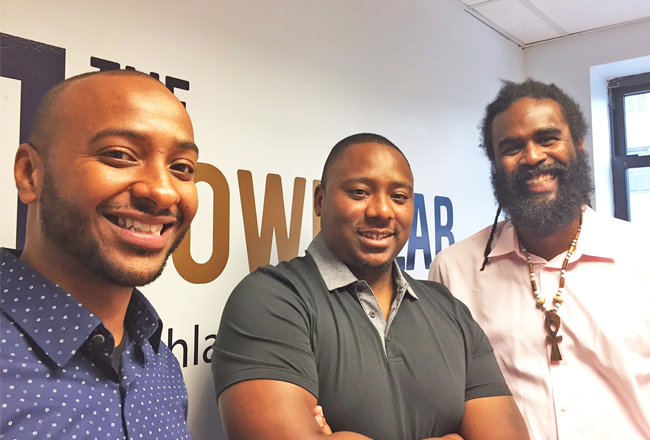On April 13, 2015, following a 3-2 vote along party lines, the Federal Communications Commission (FCC) published its final rule on net neutrality regulations, effectively changing the federal government”™s policy toward cyberspace by placing a new regulatory oversight on internet service providers or ISPs. FCC Chairman Tom Wheeler, a former lobbyist for the cable and telecommunications industry, at the time said “these enforceable, bright-line rules will ban paid prioritization and the blocking and throttling of lawful content and services.”
 On Dec. 14, 2017, the FCC under Wheeler”™s successor, Ajit Pai, reversed the 2015 ruling in a 3-2 vote. Pai, a former general counsel for Verizon who was nominated by President Barack Obama in 2011 to fill a Republican vacancy on the FCC, defended the action by claiming the rules served no practical purpose.
On Dec. 14, 2017, the FCC under Wheeler”™s successor, Ajit Pai, reversed the 2015 ruling in a 3-2 vote. Pai, a former general counsel for Verizon who was nominated by President Barack Obama in 2011 to fill a Republican vacancy on the FCC, defended the action by claiming the rules served no practical purpose.
“This decision was a mistake,” Pai said of the 2015 policy. “For one thing, there was no problem to solve. The internet wasn”™t broken in 2015. We weren”™t living in a digital dystopia. To the contrary, the internet is perhaps the one thing in American society we can all agree has been a stunning success.”
At the Connecticut Business and Industry Association, President and CEO Joseph Brennan predicted a Democratic successor to President Donald Trump could reverse the controversial policy reversal from the Obama to Trump administrations. “We don”™t want to get caught in a regulatory tug of war with every new administration,” he said. “Hopefully, it is much ado about nothing.”
Defenders of the 2015 rules said the net neutrality policy prevented ISPs from deliberately speeding up, slowing down or blocking access to content, applications or websites. Net neutrality supporters argue that with the FCC reversal, ISPs will now be able to punish their competitors by slowing down their content and demanding extra fees from companies that want faster internet service, thus forcing those who cannot pay to put up with slower internet speeds.
In the Fairfield County tech industry, there are varying degrees of apprehension as to what the revocation of the net neutrality rules will produce.
“We”™ll be finding out in the coming year,” said Brian Jackson, founder of Danbury.io, a meetup group for web developers, hackers and others. “I think it will definitely have some impact. The rules were a formalization of policy and expectation of what the internet was up to that point. The severity of what could happen depends on how the ISPs handle this. Will they take advantage of small business and force them to pay to get access to consumers? Or will they focus on the Netflixes of the world?”
Hugh Seaton, founder and CEO of Aquinas Training, a Stamford company that uses mobile digital devices in workforce training, worried that disparities in internet delivery would create havoc for smaller software companies.
“Software is delivered online, so you can launch a software product very cheaply,” he said. “If the internet runs at different speeds, it will disrupt the digital supply chain.”
Patrick O”™Donnell, CEO of Post Road Software LLC in Bridgeport, agreed. “Favoritism will be directed to large companies that can pay,” he said. “If I have my own website, I pay very little for it and I am able to have access to people. But small businesses will ultimately be cut out from this. Their websites will be very slow to load. Essentially, it will destroy small business and only large business will be able to serve in that
marketplace.”
However, options to nullify the FCC”™s decision are limited. Although New York Attorney General Eric Schneiderman announced plans to lead a multistate lawsuit to halt the FCC”™s actions, there are no legal precedents for judges to consider if the case went all the way to the U.S. Supreme Court, said Jacqueline Guzdu, an associate professor in the communications and media arts department at Western Connecticut State University.
“Is there any former law to rule on? No, there isn”™t,” she said. “We would need a change in administration to lift this.”
Guzdu said it is difficult to determine whether net neutrality will be a defining issue in the 2018 and 2020 elections. “It depends how awake the populace will be,” she said. “Consumers that support it (the recent FCC decision) don”™t like government interference. That”™s the free-trade outlook: it should be free and open. But they are shooting themselves in the foot.”
Connecticut Senate Majority Leader Bob Duff, a Democrat representing Norwalk and Darien, last month announced plans to introduce a bill in the next General Assembly session that would create a Connecticut net neutrality law. Duff said he would amend Connecticut”™s consumer protection laws to include the principles of net neutrality and “establish a process for internet service providers to certify that they will not engage in practices inconsistent with net neutrality principles.”
But tech experts are not convinced Duff”™s approach at the state level will work.
“It will become very messy for ISPs and small businesses,” said Jackson at Danbury.io. “In each individual state you have to do business with, you will have to make sure you”™re abiding by their laws.”
“I can definitely see Washington State doing it,” said Seaton at Aquinas Training. “Connecticut may not have the weight to push very much.”
Duff”™s proposal already has sparked a political response.
“We are facing millions of dollars in a (state budget) deficit and Bob Duff wants to make a new regulation?” said J.R. Romano, chairman of the Connecticut Republican Party.




















Comments 2